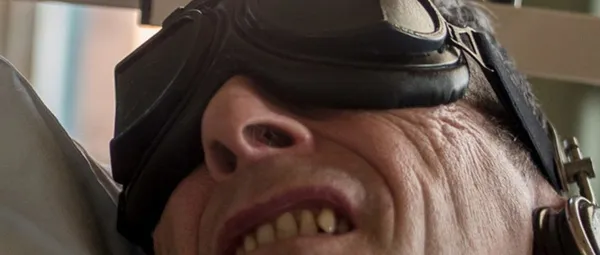Eye For Film >> Movies >> Eminent Monsters (2018) Film Review
Eminent Monsters
Reviewed by: Jennie Kermode

What does the term 'torture' mean to you? For many people it still conjures up images of Medieval dungeons, fearsome looking machines, beatings and cutting. Today, however, it looks very different. Most countries that practice it don't like to leave physical evidence of harm, so the techniques they use are more subtle. Refined and refined over time, modern torture focuses on breaking down the mind whilst leaving as few marks on the body as possible - and particularly pernicious in making this possible have been professional psychiatrists.
Stephen Bennett's documentary explores the relationship between psychiatry and torture from the 1950s to the present day, focusing in particular on the way that Ewen Cameron's work - which began with experiments on ordinary people who had gone to him for help - was funded by the CIA and Canadian intelligence, and informed their choices. There are some bizarre stories associated with this work which many of those writing on the period get distracted by, but Bennett wisely sidelines them to keep the focus on the damage done and avoid providing an emotional get-out for viewers. The testimony of those personally affected by Cameron's supposedly therapeutic work provides a good grounding for the rest, their credibility as witnesses likely to persuade even those who hesitate to believe former prisoners.

Starting with sensory deprivation and mind-altering chemicals, Cameron's work later expanded to include the use of forced comas and repetitive aural stimulation. Bennett examines the way that this went on to be used by the British in Northern Ireland during the Troubles, in combination with stress positions, whose impact is established not just through the words of those who experienced them but through the lingering damage to their bodies. He then follows this thread through to the US wars on Iraq and Afghanistan and the rebranding of certain forms of torture as 'enhanced interrogation methods', looking at how the experiences from each conflict informed the next - even though all that was really learned was how to traumatise people more efficiently, not how to extract useful information.
The practice of torture relies on another factor related to psychology - the manipulation of the public mood. Here Bennett looks at the impact of the television hit 24, which promoted false notions about the efficacy of torture alongside the idea that it could be ethically justified, just at a point when the US was starting to apply it in interrogation centres like Guantanamo Bay. There's a contribution here from Moazzem Begg, and a brief examination of the experiences of others held in the notorious prison. Images from Abu Ghraib are also used to illustrate the ways in which Arab cultural sensitivities were exploited as part of the process.
Where does all this lead? Bennett is interested not just in chronicling the past but in warning about what he sees as a present day climate that could lead to future barbarism. The speculative part of the film, towards the end, is less strongly supported and could do with more reference to other periods in history where this has happened. Bennett's film is never patronising but sometimes errs in the other direction, assuming that its audience will be fairly well educated and able to put the pieces together. Nonetheless, even if this isn't an area where you have much grounding you'll find the film internally consistent and confident in its arguments. Although in places it feels a bit scattershot, the quantity of detail that it packs in is impressive, and t's particularly strong on emotional communication, getting across better than most the point that the trauma induced by torture doesn't end with escape or release. There's an echoing pain here that would bode ill for the future in any situation.
Reviewed on: 10 Feb 2020

















